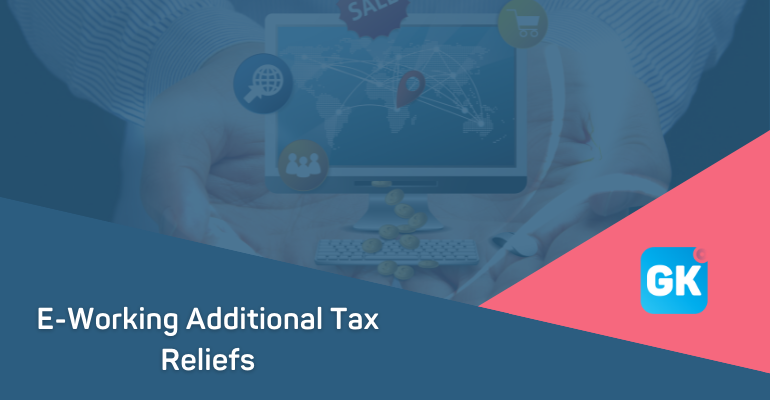E-Working Additional Tax Reliefs

Revenue accepts that an employee will incur additional utility expenses in the performance of his or her duties while working from home.
What is E-Working?
Generally, e-working is regarded as a method of working, using information and communication technology, in which the work-related activity that is carried out is not bound to any particular location.
E-Working Includes:
- Working at home either on a full-time or part-time basis; or
- Working some of the time at home and the remainder in the office.
E-Working Involves:
- logging onto the employer’s computer system remotely.
- sending and receiving email, data or files remotely.
- developing ideas, products and services remotely.
Conditions for an Employee to Qualify as an E-Worker
In order for an employee to qualify as an e-worker, for the purposes of claiming income tax relief for expenses incurred in working from home, the following conditions must be met.
- There must be a formal agreement in place between the employer and the employee under which the employee is required to work from home;
- An employee must be required to perform substantive duties of the employment at home; and
- An employee must be required to work for substantial periods at home.
Treatment of Expenses Incurred by an e-Worker
It is acknowledged that e-workers will incur certain expenditure in the performance of the duties of their employment when working remotely or when working from home. These expense items such as additional heating, electricity and broadband costs are allowed as a tax deduction for income tax purposes. However, it should be noted that capital items such as laptops, computers, office equipment and office furniture purchased by an employee are not allowable deductions under s. 114 of the Taxes Consolidation Act (TCA) 1997.
Read more at Revenue.ie


